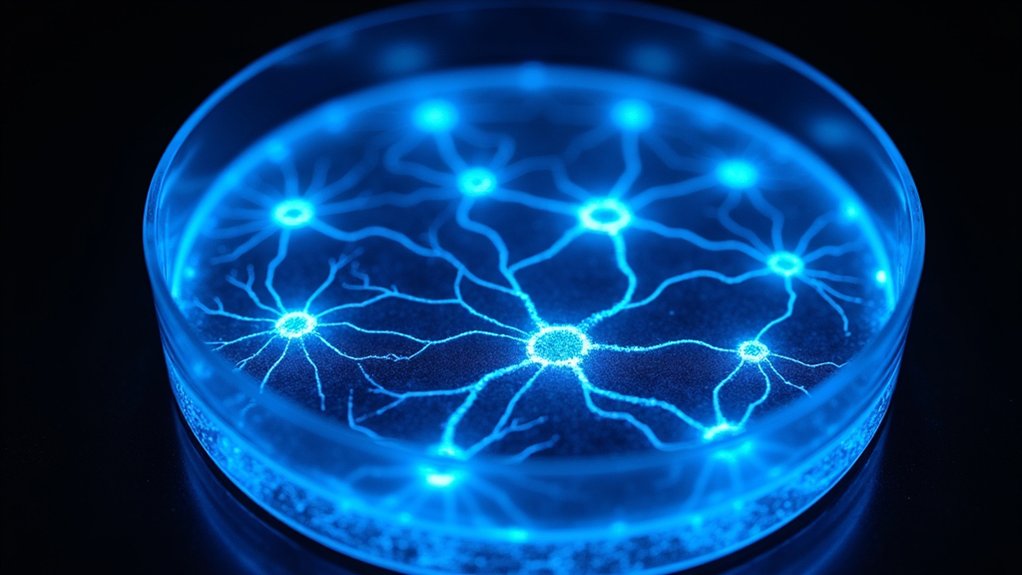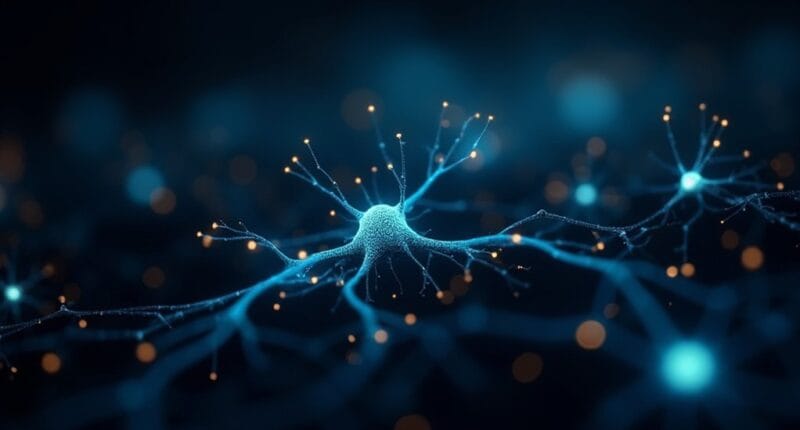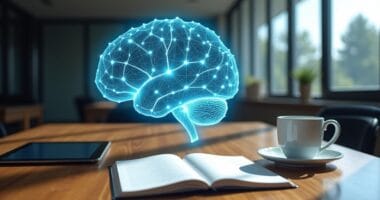Human brain cells are showing up AI systems with their incredible learning abilities – mastering concepts in one shot while AI needs endless repetition like a forgetful student. These biological powerhouses use minimal energy compared to electricity-guzzling AI networks, and they’re better at retaining old knowledge while learning new tricks. Scientists are exploring hybrid systems combining brain organoids with electronics, though ethical questions linger. The future of computing might just be hiding in our heads.

While artificial intelligence keeps getting splashier headlines, human brain cells are quietly showing off their superior learning abilities. The human brain doesn’t need hundreds of repeat viewings to learn something new – it just gets it. One and done.
Meanwhile, AI systems are like that student who needs flash cards for everything, requiring countless repetitions before finally catching on. The difference becomes even more obvious when looking at energy efficiency. Our biological neurons are running circles around artificial networks while barely breaking a sweat.
While AI needs endless drilling to learn, our brain cells effortlessly master new skills with remarkable energy efficiency.
They’re processing complex information using minimal power, while AI systems chug electricity like it’s going out of style. And let’s talk about flexibility – human brain cells adjust their connections after carefully settling into the perfect configuration. AI? It just throws numbers at the wall until something sticks.
Scientists aren’t sitting idle with this knowledge. They’ve created hybrid systems like Brainoware, combining lab-grown brain organoids with electronic circuits. These biological computing systems can handle basic tasks and even some speech recognition. The prospective configuration principle allows neurons to achieve optimal balanced arrangements before making synaptic adjustments. New research has analyzed over 100,000 sequences in human brain cells to better understand their function.
Sure, they’re not as accurate as traditional AI, but they’re way more energy-efficient. It’s like comparing a Tesla to a horse – sometimes the old ways have their advantages. The real kicker is how biological neurons adapt in real-time, something artificial networks can only dream about.
Human brains preserve existing knowledge while learning new things. AI, on the other hand, tends to forget old information when learning something new – digital amnesia at its finest.
But before we get too excited about brain-powered computers, there are some serious hurdles. Growing brain organoids at scale is tricky business, and using human brain tissue for computing raises more than a few ethical eyebrows.
Plus, current hybrid systems are still far from matching traditional AI’s accuracy. The future might lie in finding ways to combine the best of both worlds – the efficiency and adaptability of biological systems with the raw processing power of artificial networks. For now, though, our brain cells remain the undisputed champions of learning.





